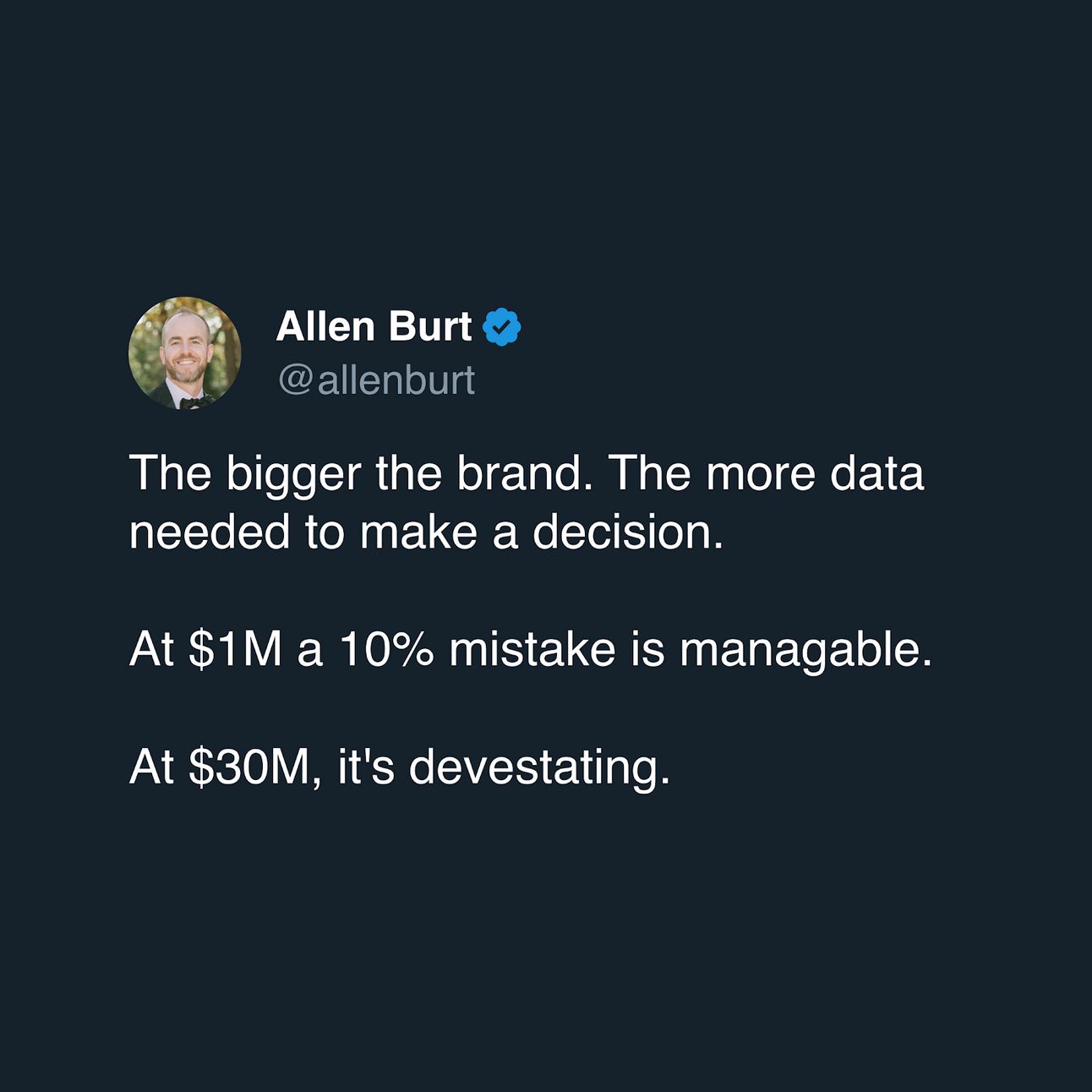Join 20,729 brand owners, operators and marketers. Subscribe here.
No. 151: Hey all,
No one knows where tariffs are heading – or how long they will last.
But waiting isn’t a strategy.
You need a plan that protects profit, preserves demand, and prepares you for any outcome.
Adjusting product pricing is not ideal and should be a last resort. But if required, it’s better to be prepared.
Here's a framework for how to adjust your pricing for tariffs.
In this issue:
An insight to test: How to bracket test price tiers to prepare for tariffs.
A news highlight: These brands are driving conversions with campaigns about quitting microplastics.
Useful tips: What to tell your customers BEFORE checkout.
Read time: 2.5 minutes
🎯 WEEKLY INSIGHT
Here’s how to adjust product pricing (and pass on costs to your customers) to account for increased tariff costs while preserving as much profit as possible.
Rising tariff pressure may mean you’ll need to pass some cost to the customer.
But, how you do this makes all the difference.
First, there are 3 ways to offset tariff-related costs with increased pricing to your customers on your site:
Increase shipping costs.
Include a line item at cart and/or checkout for "Tariff Expense”.
Increase product prices.
A successful strategy will likely incorporate all 3 methods, and each should be A/B tested to measure the impact on conversions, unit sales, revenue and PROFIT (the most important).
For now: let’s talk about how to increase product pricing.
At Blue Stout, we want to understand how your product price affects your demand.
To do this, we run bracket tests to find the best price right now, for today’s customer in today’s economy.
How it works:
Your 4-step plan for bracket price testing:
1) Choose your tiers
Select 2-4 price increase levels to test. Thnk 10%, 20%, 30% and 40% (as examples).
2) Run an A/B test for each tier
Test each price point increase live on your site to measure real behavior: not guesses.
3) Track key metrics
Watch how each price tier affects conversion rate (CVR), average order value (AOV), revenue, and profit per visitor. Profit is the most important metric.
4) Map the results
Chart the results to see how your metrics change with each tier increase to give you a clear picture of price elasticity and the impact of each increase on profit.
It’s not just about today, though.
These tests also help you plan ahead by showing how pricing affects demand over time.
When costs change, whether from tariffs or supplier price hikes, you already know how to adjust (without guessing).
Bracket test price increases before you’re forced to react later.
Why it works:
Most brands focus only on conversion rate and revenue.
But when your costs increase, you need to measure profit. Not just volume.
Bracket testing builds a live demand curve, so you can forecast and flex your pricing confidently (under any scenario). And know the exact change in profit for every increase or decrease in price.
No matter what changes with tariffs, suppliers, or costs, you’ll be ready with the right data.
⭐ Takeaway: Start testing price brackets now so you know how to adjust pricing, profitably, as tariffs continue to evolve and change.
Try it out!
🕙 WHAT’S BREWING
Here’s how to design landing pages that convert.
📣 IN CASE YOU MISSED IT
Turn your site’s exit points into entry points. Here’s how.
Having express checkout options is no longer good enough. Here's why.
How to combat high returns without obliterating future sales.
🗞️ NEWS HIGHLIGHT
Cookware brands are acquiring customers with campaigns about quitting microplastics.
👀 FROM LAST WEEK
#150: Where to put expert endorsements for higher conversions.
💡 ALLEN’S QUICK TIP
👊 STOUT SUCCESS

Ready to talk shop? Book a strategy call with me.
What did you think of today's insight?
Let’s work together. Here are 3 ways I can help:
🎯 Like this insight? See all previous wins here and collection of case studies here.
🎓 Want super short daily insights? Follow me on Twitter and LinkedIn.
📈 Ready to work together? Get on my calendar here.
That's all for today.
If you enjoyed this, please consider forwarding it to a friend, founder, or fellow marketer.
And if you have any comments/questions, I'd love to hear them.
Until next time.
— Allen

